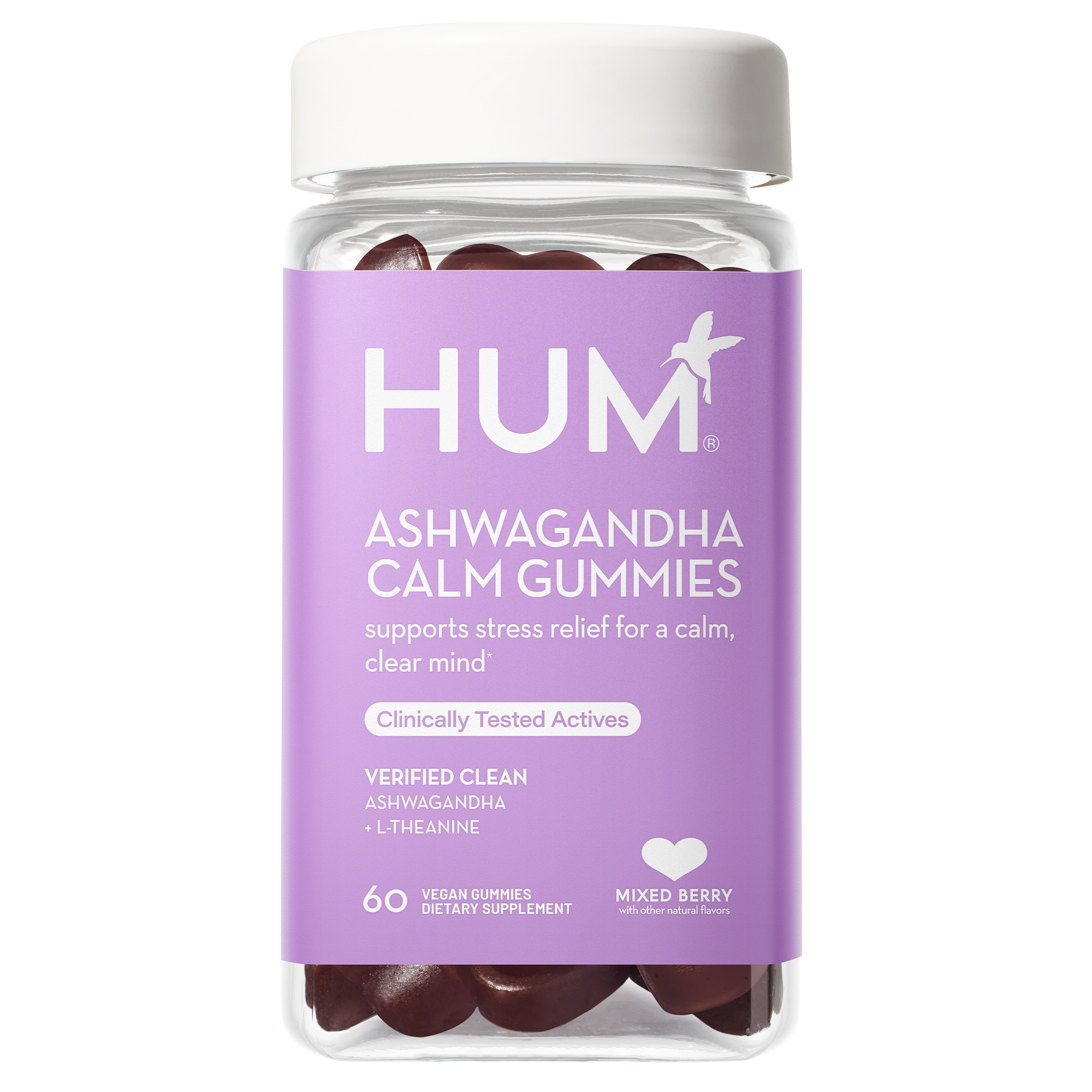Do you know what stress belly is? Carrie Gabriel, MS, RDN, discusses what a stress belly is and breaks down its causes and signs. Plus, she offers five ways to get rid of it.
It goes without saying that how you nourish your body is immensely important to your overall health. But when it comes to abdominal fat that sits in your belly region, there are other impactful factors to be aware of. Stress, for example, poses more harm to your physical and mental well-being than you might imagine–especially when it compounds over time.
That’s because stress puts your body in a fight-or-flight state, which impacts the normal processes in the body. Specifically, it can impact the way you store and use energy in your body. As a result, you might notice that your belly has grown despite keeping with the same nutrition and fitness routine.
If that’s the case, you’re likely experiencing a phenomenon called stress belly. Below, an RD breaks down everything you need to know about stress belly—including how to get rid of it.
What Is a Stress Belly?
True to its name, stress belly refers to excess stomach fat that results from chronic stress.
While stress belly isn’t a true medical diagnosis, chronic stress and consequent hormonal imbalances are what’s to blame.
What Causes Stress Belly?
Belly fat can be attributed to a variety of factors. Genetics, aging, and eating habits can all play a part, but with stress belly specifically, excess belly fat is linked to an imbalance in cortisol, the stress hormone.
Cortisol is part of our body’s fight-or-flight response. This response occurs when the sympathetic nervous system activates in times of crisis, causing the adrenal cortex to release cortisol. The body also gets a surge of glucose, which is meant to give our muscles an immediate supply of energy.
Cortisol also helps control blood sugar and metabolism. It also helps us get motivated and focused: Cortisol is usually elevated in the morning, when many of us need to perform at our best. In addition, exercise and longer periods of acute stress also release cortisol and regulate energy.
In an ideal world, our stressors would be short-lived and our hormones would soon balance out. But in reality, many of our stressors stay persistent, leaving cortisol levels consistently high. As a result, the body may produce stress belly fat in its wake. That’s because cortisol cues your body to store fat as a survival mechanism. Plus, studies have found that long periods of stress can make your body and brain feel depleted, causing you to crave sugary foods and potentially overeat.

3 Signs of Stress Belly
What does a stress belly look like? Aside from excess fat in the midsection, these are three stress belly symptoms to be aware of.
1. A Sense of Being Overwhelmed
It’s typical for people who experience cortisol imbalances to feel overwhelmed. If it feels as though you’ll explode, cry, or scream with a small or innocent provocation (like your phone falling between the car seats or someone telling you that you look tired), you may be experiencing chronic stress.
Tip: If you feel overwhelmed all the time, seek out help. See if you can delegate a few of your responsibilities (whether at home or at work) or ask your friends for assistance when possible. And if it feels like it’s not getting better, consider journaling to work through your feelings or talking to a professional to get tools to help you cope.
2. You’re Hungry All Day Long
Stress is linked to ghrelin, a hunger hormone that increases appetite and can lead to weight gain. If you feel like you could still eat after just finishing a meal, never feel satiated, or always feel the urge to snack past dinnertime, that can also signify a cortisol imbalance, which can be a risk factor for stress belly.
Tip: Make sure you’re staying hydrated throughout the day. Sometimes our hunger cues are triggered when we’re dehydrated, so drinking a glass of water can help inform whether or not you’re actually hungry.
3. Exercise Makes You Ravenous
Working out too hard can raise cortisol to unhealthy levels. On top of that, intense exercise can also increase your appetite. While feeling hungrier after a workout is completely normal, feeding your hunger with unhealthy foods may worsen stress-belly.
Tip: Exercising at a lower intensity can actually reduce cortisol levels. For that reason, consider swapping HIIT or bootcamp-style workouts for something more low-key, such as yoga or walking (head outside or try TikTok’s 12-3-30 walking workout).

How to Get Rid of Stress Belly
While you might want to look for a quick fix for your stressed-out belly, managing a cortisol imbalance that manifests as a stress belly takes time. Aim to adopt sustainable lifestyle changes. Over time, you should start to experience positive results.
Work Out Regularly
For starters, exercise is great for boosting your mood. It can also help you reduce visceral fat (aka “inside fat”), the hormonally active fatty tissue beneath your abdominal wall. When you reduce visceral fat through exercise, you effectively lower the risk of developing greater health conditions. If you’re looking for the best stress belly workout, focus on something that you enjoy and feels sustainable. Consistency is key!
Tip: Aim for at least 30 minutes of exercise (including a mix of cardio and strength training) most days of the week.

Cut Back On Alcohol
Drinking alcohol may feel good in the moment, but the relief and relaxation are usually short-lived.
If your goal is to get rid of stress belly, heavy alcohol use will typically hinder your efforts. Not only are alcoholic drinks are high in calories, but your body also burns alcohol before burning fat.
Tip: If you want to change your drinking habits but don’t want to cut out alcohol entirely, consider mindful drinking. It can help you lower your intake without feeling overly restrictive.

Eat Stress-Reducing Foods
There are a number of great foods that reduce stress you can add to your diet. Since B vitamins can help relieve stress, work the nutrient into your diet as much as possible. Foods with high vitamin B content include:
- Chicken
- Fish
- Eggs
- Dark green vegetables
- Bananas
- Avocados
Additionally, you can reach for anti-inflammatory foods that may also enable you to better maintain a healthy weight, such as:
- Berries
- Garlic
- Ginger
- Turmeric
Get Better Sleep
For adults, getting too little (less than six hours) or too much (over nine hours) of sleep is linked to developing more visceral fat.
Further, when we don’t sleep well or for enough time, our bodies don’t get the full benefits of sleep, which include both muscular and mental repair. This can cause cortisol production, which can increase visceral fat—leading to stress belly.
Tip: Create a nightly routine for yourself to help encourage better, more consistent sleep. Try setting your thermostat between 60 and 67 degrees Fahrenheit, as research suggests that’s the best temperature for sleep.
Reduce Stress With Self-Care
You may not be able to completely eliminate stress from your life, but self-care can help you manage it. That’s why it’s important to take time for yourself every day.
Pick up a book you’ve been wanting to read, play your favorite music, or have a cup of hot tea. Socializing is also a great form of self-care, as it can also take your mind off the stress.
Tip: Get the most out of your socializing by going for a walk with a friend. Paired together, physical activity and self-care through socializing can encourage more progress when it comes to getting rid of stress belly.
Common Stress Belly FAQs
What is a stress belly?
A stress belly refers to abdominal fat accumulation caused by prolonged stress, which increases cortisol levels and can lead to fat storage around the midsection.
What causes a stress belly?
Chronic stress triggers the release of cortisol, a hormone that can increase appetite and lead to fat storage, particularly in the abdominal area.
How do I get rid of a stress belly?
To reduce a stress belly, focus on managing stress through practices like mindfulness or yoga, eating a balanced diet, getting regular exercise, and ensuring sufficient sleep.
Can stress alone cause belly fat?
Stress alone doesn’t cause belly fat, but it can contribute to unhealthy eating habits, disrupted sleep, and higher cortisol levels, which may lead to fat accumulation in the belly area.
What foods help reduce a stress belly?
Foods rich in fiber, protein, and healthy fats, such as leafy greens, nuts, seeds, and fatty fish, can help balance blood sugar and reduce cortisol levels, aiding in stress belly reduction.
How long does it take to lose a stress belly?
The timeline varies depending on individual factors like diet, activity level, and stress management, but consistent lifestyle changes can yield noticeable results in a few weeks to months.












